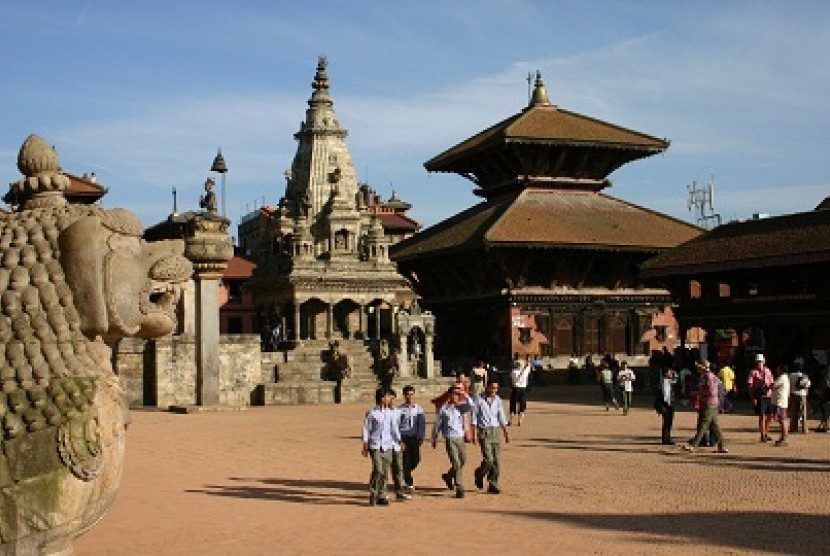REPUBLIKA.CO.ID, KATHMANDU -- Nepal called on foreign oil companies Thursday to air-lift fuel into the landlocked country to ease a nationwide shortage as supplies from India remain blocked by protesters, officials said.
Scores of trucks have been stranded at a key India-Nepal border checkpoint for almost two weeks, cutting off vital supplies and forcing fuel rationing, as ethnic minorities protest against the Himalayan nation's new constitution.
"We have issued a notice for global suppliers willing to bring in fuel by air... including aviation fuel, cooking gas, petrol and diesel," said Bijay Satyal, manager of state-run Nepal Oil Corporation.
The appeal comes ahead of a major festival when many Nepalis leave Kathmandu and travel back to their villages to celebrate with relatives.
The government began rationing supplies last week and long queues formed at petrol stations as shortages bit across Nepal, which imports all its fuel from India.
"We have to take this step because currently we are getting maybe five percent of what we normally get in terms of fuel," Satyal told AFP.
Nepal flew in fuel from Bangladesh and Singapore in 1989 after an incensed India slapped a trade embargo on its neighbour for buying arms from rival giant China.
Nepal has accused India of being behind the latest blockade at the bridge checkpoint in Birgunj, 90 kilometres (55 miles) south of the capital, in protest at Kathmandu's handling of the charter.
But India, which fears instability on the border, denies the claims and has urged dialogue with protesters to end the stand-off which started on September 24.
More than 40 people have been killed in clashes between police and protesters representing ethnic minorities who say a new federal structure laid out in the constitution adopted last month will leave them under-represented in the national parliament.
The charter -- Nepal's first to be drawn up by elected representatives -- marks the final stage in a peace process that began when Maoist rebels laid down their arms in 2006 after a decade-long insurgency.
Work on the new constitution began in 2008 after the Maoists won parliamentary elections and abolished the monarchy. But power-sharing squabbles between parties stymied progress.
Lawmakers finally reached agreement in June, spurred by a massive earthquake two months earlier that killed nearly 8,900 people and left half a million people homeless.


